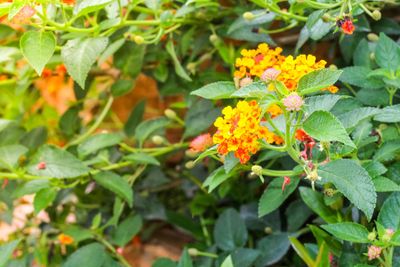About Lantana Control in Gardens
Lantana is an ornamental shrub that is popular with home gardeners. It has colorful flowers that are small but grow in tight clusters. They change color with time, going from white to pink to purple or from yellow to orange to red, and put on quite a display. Native to the West Indies, lantana is a perennial in warmer climates and an annual or an indoor container plant in cooler regions. If you have lantana well under control in your garden or in containers and you don’t live in a region where this plant has become a weed and pest, knowing how to kill lantana is probably not a top priority. However, if you are in one of the areas with out-of-control lantana, you may need to know how to manage or stop it.
How to Kill Lantana Weeds
Lantana management can be difficult because this is a tough plant that grows quickly and aggressively. On farm and pastureland, this weed grows into thick hedges that are difficult to penetrate. Furthermore, lantana is toxic to livestock and humans. Any type of chemical control or mechanical control is likely to be too costly in large areas where it really causes damage. In the home garden, simply pulling out lantana can be adequate for controlling its spread. Just keep in mind that contact with the leaves and stems can cause skin irritation and a rash. Use gloves and wear long sleeves before tackling lantana. For areas in which it has taken stronger root, stopping lantana is a challenge. A multi-step approach is best. Removing flower heads before seeds form can prevent some of the spread of lantana, for instance. Keeping your yard full of healthy, native plants can also prevent the spread of lantana, which generally takes over disturbed, open areas. Some type of biological control may also help, and researchers are currently working on strategies using insects to destroy lantana plants. Check with your local agricultural university extension to find out if using a certain type of insect is recommended in your area. With all of these steps used together, you should be able to manage or even eliminate invasive lantana from your garden or yard.
